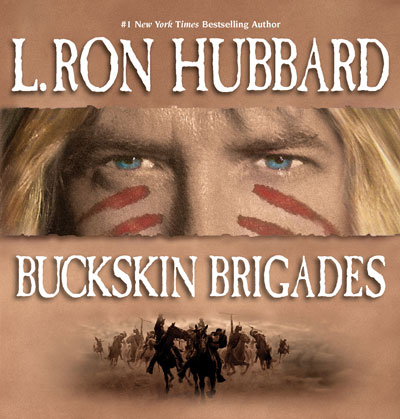How far is too far? What price do we pay for expanding our knowledge to the limit, for exploring the farthest reaches of the universe, for extending our reach To the Stars?
Alan Corday, a smart yet desperate young man, is about to find out. His family fortune squandered and the woman he loves unattainable, Corday will go to almost any length to change his luck. But his desperation leads him into harm’s way—and into the hands of one Captain Jocelyn and his crew.
Shanghaied from the spaceport at New Chicago, Corday is taken aboard the Hound of Heaven, a craft bound for the stars … on a journey through hell.
186,000 miles per second. The speed of light. It’s the only way for the Hound of Heaven to reach its distant destinations. But three months traveling at the speed of light is equal to half a century on earth—and the world they left behind is fast vanishing into the past.
Everything Corday loves, everything he believes in—is history. He is a wanderer in eternity, and nothing in the cold, dark forbidding reaches of space can prepare him for the astounding discovery he will make upon his long-awaited return from the stars.
Performers: R.F. Daley (narrator), Jim Meskimen, Bob Caso, and Jack Armstrong.
“One of the greatest science fiction novels that has ever been written” —Jerry Pournelle, author of Lucifer’s Hammer
ABOUT THE AUTHOR
The novel, To the Stars, is built with masterly skills from hard, scientific theory—in this case, the Einstein-Lorentz-Fitzgerald “time-dilation” equation: “As mass approaches the speed of light, time approaches zero.”
L. Ron Hubbard initially encountered the theory as an engineering student at George Washington University and first broached the equation as a theme in his story “Beyond All Weapons.” In To the Stars, the motif took on groundbreaking proportions—a story seminal in scope, technical detail and influence and, by reader and critical consensus, the classic science-fiction treatment of the time-dilation effect.
The novel starts off with one of the most celebrated opening lines in the history of the genre:
“Space is deep, Man is small and Time is his relentless enemy.”
To the Stars Glossary
Alpha or Alpha Centauri: the brightest star in the southern constellation of Centaurus and triple-star system located 4.2 to 4.34 light-years away. It is the closest star system to the Sun. To the unaided eye, however, it appears as a single star, whose total visual magnitude would identify it as the third brightest in the night sky.
appetite over tin cup: a pioneer Western United States term used by riverboat men on the Missouri, meaning head over heels or bowled over.
blouse: the service coat or tunic worn by the members of some branches of the US armed forces.
blowsy: said of a woman, untidy, slovenly in appearance; sluttish.
bone up: to study intensively; cram.
brimstone: sulfur; a mineral substance, which emits a peculiar suffocating odor when burning which is often associated with hell. Used figuratively to denote destruction or punishment and “hell and damnation.”
cabin: from cabin class; the class of accommodations on a passenger ship less costly and less luxurious than first class, but more so than tourist class.
captain’s runner: the captain’s messenger.
cheroot: an inexpensive cigar with square-cut ends.
con: 1. to conduct or superintend the steering of a vessel; to watch the course of a vessel and direct the helmsman how to steer. 2. the position of responsibility and authority for the operation and steering of a ship.
cud: a portion of tobacco held in the mouth and chewed.
descriptive geometry: a branch of geometry concerned with the two-dimensional representation of three-dimensional objects.
driveman: one who assists in the running of the drives (the mechanism by which force or power is transmitted in the engine) aboard a ship.
dyne: a unit of force that, acting on a mass of one gram, increases its velocity by one centimeter per second every second along the direction in which it acts.
enfilade: gunfire directed along the length of a target, such as a column of troops.
extra-atmosphere travel: travel in outer space, beyond the atmosphere of the planet.
fatigue cap: working uniform cap.
fission: a nuclear reaction in which a nucleus splits into smaller nuclei with the simultaneous release of energy.
footpad: a thief on foot who robs travelers on the road.
G: short for grand; one thousand dollars.
gamma or gamma rays: streams of high-energy electromagnetic radiation given off by an atomic nucleus undergoing radioactive decay.
gow-eater: an opium addict. Gow is from the Cantonese word yao-kao which means opium.
HCL: hydrochloric acid; a strong acid made by dissolving hydrogen chloride gas in water; a colorless, corrosive gas of pungent, suffocating odor. It is found naturally in gastric acid.
hooker: a worn-out or clumsy ship.
instanter: immediately; at once; instantly.
jigger: a small measure for liquor, usually holding one and a half ounces.
lardulous: characterized by lard or fat.
limned: outlined in clear detail; delineated.
lingua: any hybrid language used for communication between different peoples.
man-o’-war: a warship; combat ship.
mort: a great number or quantity.
narcohypnosis: hypnotic suggestions made while a patient is drugged, used in psychotherapy.
oncet: once.
patois: a regional form of a language differing from the standard literary form.
pidgin: a mixed language, or jargon, incorporating the vocabulary of one or more languages with a very simplified form of the grammatical system of one of these and not used as the main language or any of its speakers.
“piped the belly”: nautical tradition of using a pipe (whistlelike device) to communicate orders via different arrangements of notes. Belly is a term for stomach or appetite for food. “Piped the belly” was the signal used to announce meals.
plate fleet: Spanish fleet of the eighteenth century; the ships in the fleet were loaded with gold, silver, gems and other trade goods as well as rare Chinese porcelain tableware, hence the name “plate fleet.” Due to bad weather and other misfortunes, a number of the ships, along with all their treasures, were lost at sea.
plug: a rectangular bar of chewing tobacco.
proof: give a resistant quality to; to treat for the purpose of rendering resistant to deterioration, damage, etc.
quixotic: caught up in the romance of noble deeds and the pursuit of unreachable goals; idealistic without regard to practicality. From Don Quixote, romantic, impractical hero of Miguel de Cervantes’ (1547–1616) satirical novel Don Quixote de la Mancha (1605).
RG: regurgitant gas; gas that induces uncontrolled retching and vomiting.
Rigel Kentaurus: another name for Alpha Centauri, the brightest celestial object in the southern constellation of Centaurus.
ritocrat: short for aristocrat; a member of the ruling class or nobility.
salaam: a gesture of greeting or respect consisting of a low bow of the head and body with the hand or fingers touching the forehead. Salaam is from the Arabic word meaning peace.
sawbones: a doctor; especially a surgeon.
space artist: a ship’s navigator; coined from the nautical term sea artist, a nickname for someone skilled in navigation.
stews: a neighborhood occupied chiefly by brothels.
swell: a socially prominent person.
trick: a period or turn of duty, as at the helm of a ship.
wardroom: the living quarters and mess for officers on a warship.
watch: watch officer; the senior deck officer responsible for navigating and conducting the business of a ship during a specific duty period. Also, the time each watch has duty.











